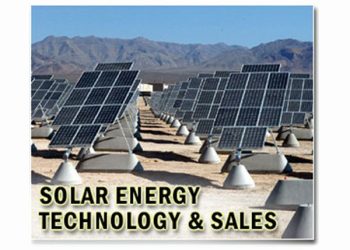The U.S. Senate unveiled its updates to the reconciliation bill late Friday night, and in many aspects it was worse for the solar industry than before. The Senate should begin voting on the bill today, and then everyone can better understand the damage.
“This reconciliation bill proposal isn’t just misguided — it’s a direct attack on American energy, American workers, and American consumers. It guts the very industries that are lowering electricity bills, revitalizing U.S. manufacturing, and building more new power capacity than every other energy technology combined,” stated Abigail Ross Hopper, president and CEO of the Solar Energy Industries Association (SEIA). “Make no mistake: if this bill passes, Americans will pay the price — literally. Power bills will rise. Factory jobs will vanish. Families will be forced to spend more just to keep the lights on and their homes cool. All while we become more dependent on foreign energy and more vulnerable to blackouts. Any Senator who votes for this bill is voting for higher energy prices, a weaker economy, and a less secure America. And they’ll have to answer for it when families open their utility bills, when workers lose their paychecks, and when voters head to the polls.”
Key highlights in latest bill edit
- For the utility-scale ITC (48E) and PTC (45Y), the Senate changed language so projects would have to be placed into service by year-end 2027 to get any incentive amount. The original Senate bill draft allowed for 100% credit amount as long as construction started by the end of 2025.
- Homeowner/residential ITC (25D) is still written to expire at year-end 2025. But the denial of residential leasing companies from receiving the ITC appears to be removed.
- A new tax is invented, after the utility-scale ITC/PTC expires. Any project that starts construction before 2035 would have to abide by the “foreign entity of concern” (FEOC) clause or be subject to a 50% tax. In basic terms: If a project uses any component that has any association with China, it would pay a 50% tax.
- The storage ITC is still exempt from the accelerated phasedown and is intact through 2033.
- The manufacturing tax credit (45X) is still preserved and stackability appears to be restored (meaning a solar wafer-cell-panel manufacturer can get credits for all three components).
“With no warning, the Senate has proposed new language that would increase taxes on domestic energy production,” said American Clean Power Association (ACP) CEO Jason Grumet. “These new taxes will strand hundreds of billions of dollars in current investments, threaten energy security, undermine growth in domestic manufacturing and land hardest on rural communities who would have been the greatest beneficiaries of clean energy investment.”
Solar Power World will review the latest updates to the bill as voting happens and report on the final outcome.
















